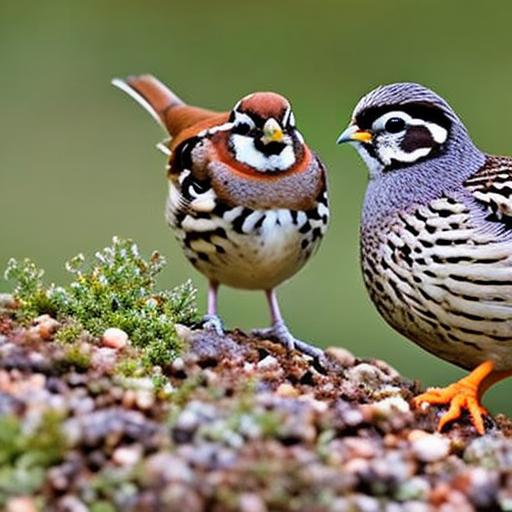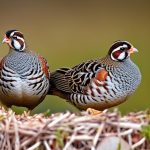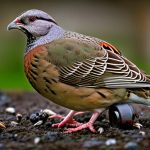Keeping quail indoors can offer a range of benefits for both the quail and their owners. One of the main advantages is the ability to closely monitor the health and well-being of the quail in a controlled environment. This can be especially important for quail that are being raised for breeding or for their eggs. By keeping them indoors, owners can ensure that the quail are protected from predators and extreme weather conditions, which can help to reduce stress and improve overall productivity.
Additionally, keeping quail indoors can make it easier to maintain a consistent environment, including temperature, lighting, and humidity levels. This can be particularly beneficial for quail that are being raised for commercial purposes, as it can help to optimize growth rates and egg production. Furthermore, indoor quail habitats can be designed to minimize the risk of disease transmission, which is especially important for quail that are being raised in close proximity to one another. Overall, keeping quail indoors can provide a safe and controlled environment that promotes the health and well-being of the birds, while also offering practical benefits for their owners.
Key Takeaways
- Keeping quail indoors can provide a consistent and controlled environment for their well-being and safety.
- Setting up a quail habitat indoors requires proper ventilation, lighting, and space for the birds to move around.
- Feeding and caring for quail in an indoor environment involves providing a balanced diet and monitoring their health regularly.
- Maintaining cleanliness and hygiene for indoor quail is essential to prevent the spread of diseases and ensure their comfort.
- Providing enrichment and stimulation for indoor quail can include offering perches, toys, and opportunities for social interaction.
Setting Up a Quail Habitat Indoors
Setting up a quail habitat indoors requires careful planning and consideration of the specific needs of these birds. The first step is to select an appropriate enclosure that provides enough space for the quail to move around comfortably. This can be a large cage or an indoor aviary, depending on the number of quail being housed. The enclosure should also be escape-proof and provide adequate ventilation to ensure good air quality.
Next, it’s important to consider the flooring of the enclosure. Quail are ground-dwelling birds and prefer to walk on solid surfaces, so a solid flooring material such as linoleum or tile is recommended. This will also make it easier to clean and maintain hygiene in the habitat. Additionally, providing a variety of perches and hiding spots can help to create a stimulating environment for the quail. It’s also important to consider the lighting and heating needs of the quail, as well as providing access to fresh water and a balanced diet. Overall, setting up a quail habitat indoors requires careful attention to detail to ensure that the birds have everything they need to thrive in their new environment.
Feeding and Caring for Quail in an Indoor Environment
Feeding and caring for quail in an indoor environment requires a good understanding of their dietary needs and daily care routines. Quail are omnivorous birds and require a balanced diet that includes a mix of commercial quail feed, fresh greens, and protein sources such as mealworms or small insects. It’s important to provide access to fresh water at all times, as quail can quickly become dehydrated, especially in a controlled indoor environment.
In addition to their dietary needs, caring for quail indoors also involves monitoring their health and behavior on a daily basis. This includes checking for any signs of illness or injury, as well as observing their social interactions within the group. Regular cleaning and maintenance of the indoor habitat is also essential for ensuring the health and well-being of the quail. This includes removing soiled bedding, cleaning food and water dishes, and regularly disinfecting the enclosure to prevent the spread of disease. Overall, feeding and caring for quail in an indoor environment requires a proactive approach to meeting their dietary needs and ensuring their overall welfare.
Maintaining Cleanliness and Hygiene for Indoor Quail
Maintaining cleanliness and hygiene for indoor quail is essential for preventing the spread of disease and ensuring the health and well-being of the birds. One of the key aspects of maintaining cleanliness is regular cleaning of the indoor habitat. This includes removing soiled bedding, cleaning food and water dishes, and disinfecting the enclosure on a regular basis. Using safe and effective disinfectants is important to ensure that any potential pathogens are eliminated without harming the quail.
In addition to regular cleaning, it’s important to monitor the air quality in the indoor habitat. Good ventilation is essential for ensuring that the air remains fresh and free from harmful contaminants. This can be achieved by providing adequate airflow through windows or vents, as well as using air purifiers if necessary. Another important aspect of maintaining cleanliness is practicing good personal hygiene when handling the quail or their habitat. This includes washing hands before and after handling the birds, as well as wearing protective clothing if necessary. Overall, maintaining cleanliness and hygiene for indoor quail requires a proactive approach to preventing the spread of disease and ensuring a healthy environment for the birds.
Providing Enrichment and Stimulation for Indoor Quail
Providing enrichment and stimulation for indoor quail is essential for promoting their physical and mental well-being. Quail are active birds that enjoy exploring their environment, so providing a variety of perches, hiding spots, and toys can help to keep them engaged and entertained. This can include natural materials such as branches or logs, as well as commercially available toys designed for small birds.
In addition to physical enrichment, it’s also important to provide mental stimulation for indoor quail. This can be achieved by offering opportunities for foraging, such as scattering food around the enclosure or providing puzzle feeders that require the birds to work for their food. Additionally, playing gentle music or providing visual stimulation with mirrors or colorful objects can help to keep the quail mentally engaged. Overall, providing enrichment and stimulation for indoor quail is essential for promoting their overall well-being and preventing boredom or stress.
Dealing with Potential Challenges of Keeping Quail Indoors

Keeping quail indoors can present a range of potential challenges that owners should be prepared to address. One common challenge is managing noise levels, as quail can be vocal birds, especially during breeding season. This may be a concern for owners who live in close proximity to neighbors or in apartments. Providing adequate soundproofing or choosing a location for the indoor habitat that minimizes noise transmission can help to address this challenge.
Another potential challenge is managing odor from the quail habitat. Regular cleaning and maintenance of the enclosure can help to minimize odor, but owners may also need to consider using air purifiers or other odor-control methods if necessary. Additionally, preventing boredom and stress in indoor quail can be a challenge, especially if they are housed in a relatively small enclosure. Providing ample enrichment and stimulation, as well as ensuring that the birds have enough space to move around comfortably, can help to address this challenge.
Considering the Legal and Ethical Aspects of Keeping Quail Indoors
When keeping quail indoors, it’s important to consider both the legal requirements and ethical considerations associated with keeping these birds. In some areas, there may be specific regulations or permits required for keeping quail, especially if they are being raised for commercial purposes or in large numbers. Owners should familiarize themselves with local laws and regulations related to keeping quail indoors to ensure compliance.
From an ethical standpoint, it’s important to ensure that indoor quail are provided with a high standard of care that meets their physical and behavioral needs. This includes providing adequate space, enrichment, and social interaction with other quail. Additionally, ensuring that the birds have access to a balanced diet, fresh water, and appropriate veterinary care is essential for meeting their welfare needs. Overall, considering the legal and ethical aspects of keeping quail indoors is essential for ensuring that these birds are provided with a safe and healthy environment in which to thrive.
If you’re considering keeping quail indoors, you may also be interested in learning about creating a suitable living space for chickens. Check out this informative article on chicken coop run plans to ensure your feathered friends have a comfortable and secure environment.
FAQs
What are the benefits of keeping quail indoors?
Keeping quail indoors can provide a controlled environment for their safety and well-being. It also allows for easier monitoring of their health and behavior.
What are the housing requirements for indoor quail?
Indoor quail housing should include a secure and spacious enclosure with proper ventilation, bedding, and access to food and water. It is important to provide a clean and comfortable living space for the quail.
What type of diet do indoor quail require?
Indoor quail require a balanced diet that includes commercial quail feed, fresh greens, and occasional treats such as mealworms or fruits. It is important to provide access to clean water at all times.
How can I ensure the well-being of indoor quail?
To ensure the well-being of indoor quail, it is important to regularly clean their living space, provide a balanced diet, monitor their health, and provide opportunities for exercise and social interaction.
Are there any legal restrictions on keeping quail indoors?
It is important to check local regulations and zoning laws before keeping quail indoors, as there may be restrictions on keeping poultry in residential areas. It is also important to consider any homeowner association rules or lease agreements that may apply.
Meet Walter, the feathered-friend fanatic of Florida! Nestled in the sunshine state, Walter struts through life with his feathered companions, clucking his way to happiness. With a coop that’s fancier than a five-star hotel, he’s the Don Juan of the chicken world. When he’s not teaching his hens to do the cha-cha, you’ll find him in a heated debate with his prized rooster, Sir Clucks-a-Lot. Walter’s poultry passion is no yolk; he’s the sunny-side-up guy you never knew you needed in your flock of friends!







